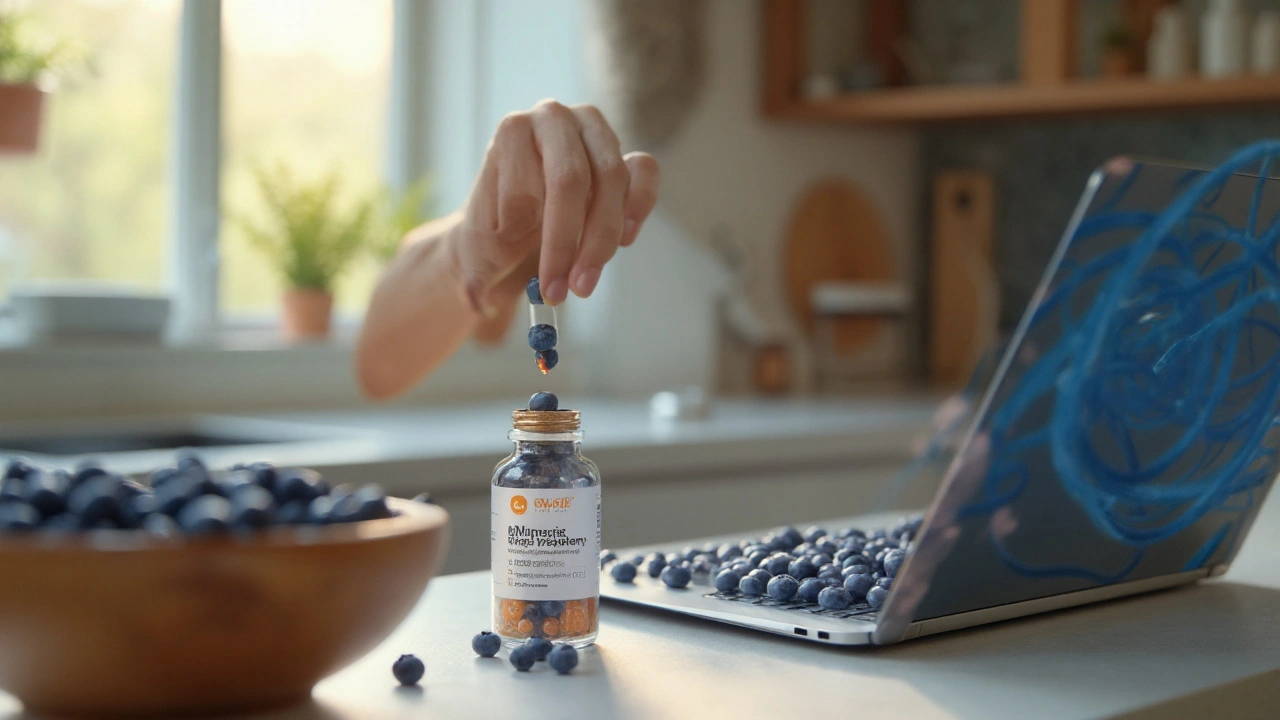Blueberry Supplements: What They Are and Why They Matter
If you’ve heard that blueberries are a superfood, you’ve probably wondered if a pill can give you the same boost. A blueberry supplement is basically powdered or extracted blueberry packed into capsules, tablets, or powders you mix with water. The idea is simple – you get the antioxidants and nutrients without buying a whole crate of berries. For many people, especially those who don’t eat fresh fruit daily, these supplements can fill a gap.
Most blueberry supplements use an extract called anthocyanin, the pigment that makes the berries blue and gives them antioxidant power. Anthocyanins help fight oxidative stress, which is what doctors call the damage caused by free radicals. In everyday language, that means they might protect cells from wear and tear, support brain health, and keep your inflammation in check.
Key Benefits You Can Expect
First up, eye health. Studies on people who take blueberry extract regularly show better night vision and less eye strain. If you spend a lot of time on screens, that could be a real perk.
Second, memory and focus. Some research links anthocyanins to improved recall and faster reaction times. You don’t need to become a genius, but you might notice you’re sharper during a work meeting.
Third, heart support. Blueberries can improve cholesterol levels and lower blood pressure in some folks. When you add a supplement on top of a balanced diet, the effect can add up.
Finally, exercise recovery. The anti‑inflammatory properties may reduce muscle soreness after a tough workout, helping you bounce back quicker.
Choosing a Safe and Effective Product
Not all blueberry supplements are created equal. Look for a label that lists the amount of anthocyanins, not just “blueberry powder.” A good benchmark is at least 150 mg of anthocyanins per serving.
Check the source. Organic blueberries from reputable farms reduce the chance of pesticides sneaking into the extract. If the product mentions a third‑party test (like USP or NSF), that’s a sign the manufacturer cares about purity.
Watch the dosage. Most studies use 300–500 mg of anthocyanins per day, split into two doses. Starting with a lower dose and seeing how you feel is a smart move, especially if you’re on meds that affect blood clotting.
Side effects are rare, but a few people report mild stomach upset or a reddish tint in urine – that’s normal and just shows the pigments are being excreted.
Finally, price matters. You don’t need the most expensive bottle to get benefits. Compare the cost per milligram of anthocyanins and pick the best value.
Bottom line: blueberry supplements can be a handy shortcut to the fruit’s antioxidant perks, especially if fresh berries aren’t on your menu. Keep an eye on the anthocyanin content, choose a reputable brand, and stick to the recommended dose. With those basics covered, you’ll be set to enjoy clearer eyes, sharper thoughts, and a little extra support for your heart and muscles.
Discover how blueberry supplements boost cognition, heart health, gut microbiome and more. Learn what to look for, how to use them safely, and answer common questions.
